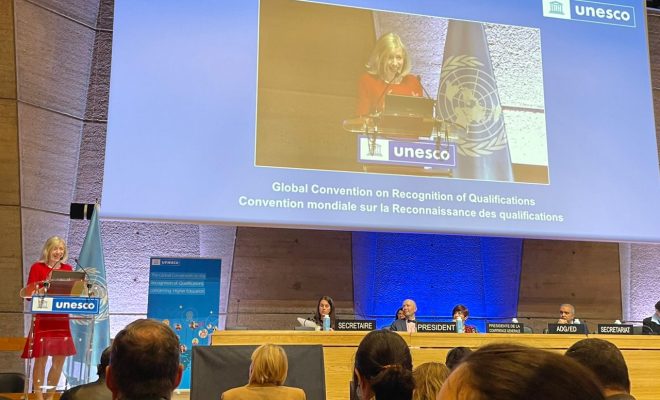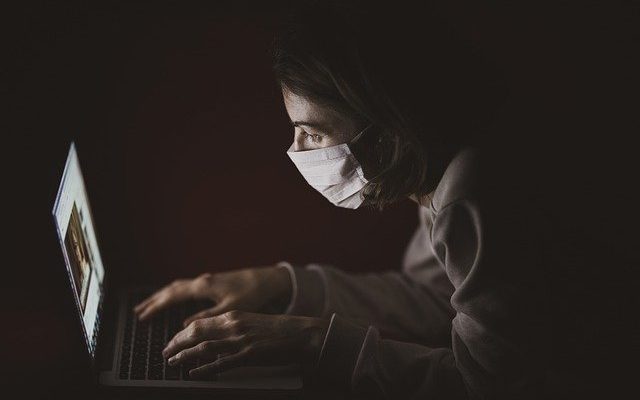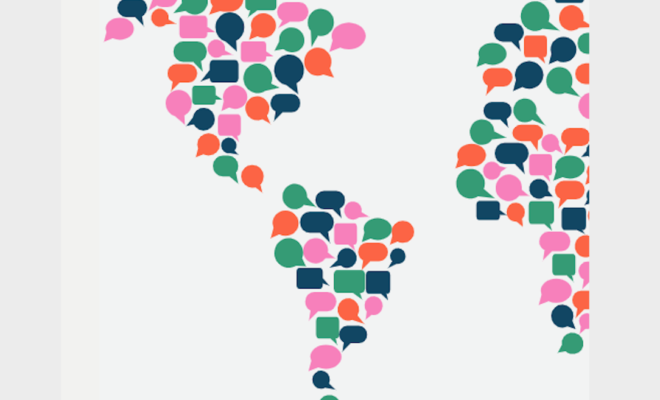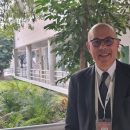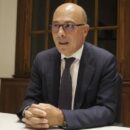Webinar release: Thinking higher and beyond; our experts talk about the futures of higher education

By Eglis Chacón | On 25 May 2021, UNESCO-IESALC launched the report “Thinking Higher and Beyond Perspectives on the Futures of Higher Education to 2050” with a webinar attended by more than 500 people from over 50 countries. The report forms part of a major new project at UNESCO-IESALC that takes a global perspective by encouraging debates on the role of higher education over the next 30 years.
Among the panelists at the webinar were Professor Ahmad Y. Majdoubeh, Vice President for Humanities, University of Jordan, Jordan, Professor Emeritus Takyiwaa Manuh, Institute of African Studies, University of Ghana, Ghana, Professor Rajani Naidoo, Director of the International Centre for Higher Education Management and UNESCO Chair in Higher Education Management, University of Bath, UK, Professor Dzulkifli (Dzul) Razak, Rector of the International Islamic University Malaysia, and Professor Patricia Mariella Ruiz Bravo López, UNESCO Chair in Gender Equality in Higher Education, Pontificia Universidad Católica del Perú, Peru.

The strong turnout at the webinar led to a host of interesting questions and comments from participants. To continue the discussion, this blog post engages with the points raised during the webinar around UNESCO’s work on developing and transforming higher education institutions (HEIs).
One of UNESCO’s initiatives to transform HEIs has been around the promotion of solutions associated with their science, technology, and innovation. Shortly after the webinar, UNESCO launched a new Science Report 2021 “The Race Against the Clock for Smarter Development“. This report indicates that 89% of scientific research is concentrated in middle-income and upper-middle-income countries. This difference in scientific activity not only shows an unequal distribution but also highlights the difficulties faced by developing countries to innovate and thus improve performance.
To overcome the great challenge faced by developing countries, one of the strategies promoted by UNESCO is related to some of the topics discussed by the experts and addressed in the Thinking Higher and Beyond report: Contributing to social and economic development and connecting the higher education ecosystem.
A recent example of this type of initiative has been the cooperation between industry, academia, and governments for the manufacture of vaccines to tackle the current pandemic, demonstrating the need to work actively and collaboratively in favour of the production of knowledge for the common good. However, as Professor Naidoo mentioned during the webinar, the “competition fetish ” and the “cult of the market” can be some of the spectres that can prevent initiatives of this type from consolidating and becoming part of a more connected ecosystem. In this sense, Professor Razak mention about the increasing commoditization of higher education, and the needs to work collaboratively in a holistic sense, with a whole institution, community, and government approach, insisting that “we cannot work in piecemeal anymore” and the necessity of “humanizing education”, in other words a wise model which values could make education more inclusive, sustainable, equitable and resilience.
Prof. Ruiz Bravo López emphasized the importance of HEIs towards 2050 being “open door” not only with companies but also with different institutions capable of integrating formal and informal knowledge in favour of the communities, promoting coexistence values and tolerance.
The experts also expressed their views about the collaboration within the small universities. To this regard, Professor Manuh mentioned the importance on recognizing the broad diversity of HEIs which includes, universities, research institutes, small institutes, and colleges, and acknowledging the links between universities in their different levels of the educational pipeline in other to see build bridges.
Another topic introduced during the discussion was the blended learning, in this matter, Professor Madjoubeh expressed the relevance of students being the owner of their own learning, as we move into the future, the role of the universities is to provide a well-balanced courses and programs in different modalities.
As part of the next phase IESALC’s project on the future of higher education, we invite you to take part and tell us about your views on the future of higher education. To give your opinion, please complete our short survey in English, French, Portuguese, or Spanish by 31 July 2021.
RELATED ITEMS


